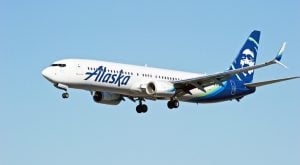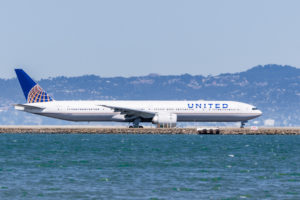These airline companies did not experience an impact on their operations to the same scale as major airlines like United Airlines (NYSE:UAL) and Delta Air Lines (NYSE:DAL), the latter of which still hasn’t fully recovered from the outage. For investors, this separation of major airlines from regional and low-cost carriers underscores that sometimes smaller, more simply managed companies can prevail.
As such, here are three airline stocks that were unaffected by the CrowdStrike outage and managed to continue their operations with little delay. These are not necessarily buy ratings at this time, but rather examples of more resilient systems.
Southwest Airlines (LUV)

While no stranger to IT outages, Southwest Airlines (NYSE:LUV) managed to escape the chaos of July 19 for one simple reason – it hasn’t updated its computer operating systems in decades. That’s right, the largest airline in the U.S. by number of passengers carried, and fourth largest overall, is still running Windows 3.1. As a result, Southwest never received the CrowdStrike update which caused so many other Windows machines to cascade into “blue screen of death” (BSoD) errors.
Thus, LUV stock saw little to no substantial movement in the hours and days following the crash. Rather, it remains steady around its median price of $26 over the last 52 weeks. While somewhat intriguing how such a large airline manages with such dated systems, it underscores a critical aspect of how Southwest conducts business. That is, it only spends money on that which is most necessary to its operations. This is reflected in its fleet of easy-to-maintain and ubiquitous 737s and its strategy of staying dedicated to the domestic market rather than the international.
Alaska Air Group (ALK)

In 2023, Alaska Air Group (NYSE:ALK) carried just over 35 million passengers across its primarily Pacific Northwest routes. This made it eight by volume for the year and it continued to grow this year as its all 737 fleet continues to provide low-cost and manageable operations for the company. Alaska Air Group also doesn’t use CrowdStrike as its kernel-embedded cybersecurity solution, meaning its flights and operations remained unaffected by the update.
As such, ALK stock did not see any significant dips in its trajectory, rather it climbed slightly in the days following July 19. Much like Southwest, ALK’s investing prospects have remained relatively stable as the company follows a similar, primarily continental, business model relying on low-cost aircraft.
However, from a financial standpoint, ALK stock seems relatively stagnant due to its mixed second-quarter earnings which saw revenue increase by 2.08%, missing analyst forecasts by 1.32%.
United Airlines (UAL)

Though it became one of the major airlines most strongly affected by the outage, United Airlines was able to rapidly recover on the day of the CrowdStrike outage without canceling too many flights and ruining its operations for weeks like its primary competitor Delta. As a result, UAL stock has recovered almost entirely from the days following the outage.
This kind of rapid operational flexibility remains one of the things United is famous for, with many of its longtime customers knowing just how committed United is to timeliness and recovering schedules. In fact, the company currently holds a 79.10% on-time performance rating, which it has consistently worked to improve upon since 2019.
Beyond these statistics, the carrier has recovered almost entirely in the last ten days while its main competitor Delta is facing probes from the Federal Aviation Administration as to why it is struggling to recover from the outage.
On the date of publication, Viktor Zarev did not have (either directly or indirectly) any positions in the securities mentioned in this article. The opinions expressed in this article are those of the writer, subject to the InvestorPlace.com Publishing Guidelines.
On the date of publication, the responsible editor did not have (either directly or indirectly) any positions in the securities mentioned in this article.
Viktor Zarev is a scientist, researcher, and writer specializing in explaining the complex world of technology stocks through dedication to accuracy and understanding.
